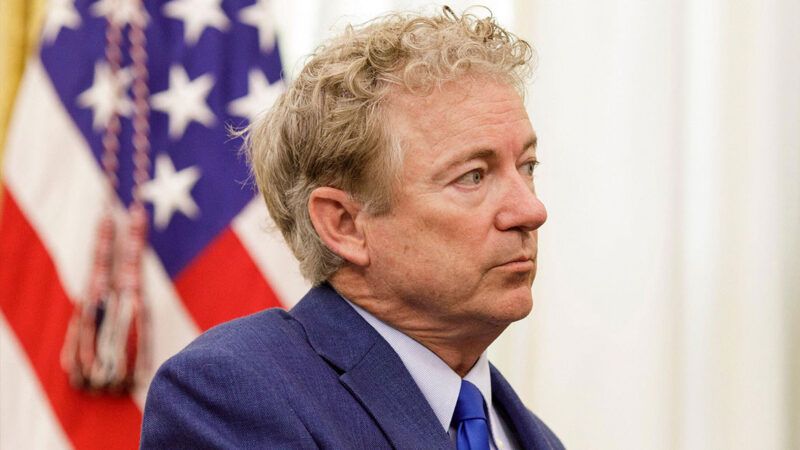Rand Paul on China, Free Speech, and Banning TikTok
"I said now that they're banning it, I want to join, just because they're telling me I can't," the Kentucky senator tells Reason.

Sen. Rand Paul (R–Ky.) has opposed the TikTok ban since it caught on in Congress. In January, sensing a congressional attitude shift after President Donald Trump came to the app's defense, Paul introduced the Repeal the TikTok Ban Act. The bill is part of Paul's broader project of trying to keep alive a "consistently free trade and free markets" wing within the Republican Party. Reason's Elizabeth Nolan Brown spoke with the senator in January about TikTok, the trouble with isolating ourselves from China, and the divisions between conservatives and libertarians on speech.
Q: What would your Repeal the TikTok Ban Act do, and why is it necessary?
A: I've been fighting against the TikTok ban since the idea came around. I think it's part of an overall hysteria on the Hill about China, and also a misguided approach. I think the more you ban trade, the more you ban things like TikTok, the worse relations get.
I think the [Supreme] Court got it wrong [when it upheld Congress' forced sale of TikTok]. I don't think there's a national security exception to the First Amendment. I think [the Court] said, "Oh, well, if Congress says there's a safety concern, we'll listen to Congress." But I don't buy that, nor do I think they proved their case.
Many of the people who voted for this, now that Trump has changed his mind, they all seem to be changing their mind, too. There actually is a possibility that something like a repeal could pass. If you're on TikTok, it's at least something to rally around to try to support.
You are reading Sex & Tech, from Elizabeth Nolan Brown. Get more of Elizabeth's sex, tech, bodily autonomy, law, and online culture coverage.
Q: What is your take on Trump's executive order extending the TikTok sale deadline?
A: I don't think the law allows him to do it. But also, I don't want to spend a lot of my time blasting the president for doing something that the end result's probably going to be good. I don't know what to think about the extension.
With this thing on TikTok, it's not isolated. Every day I confront a bill that wants to ban another Chinese company. I look at it from the perspective not only of freedom of trade, but also from the prosperity argument—that it makes us all richer in America to trade with countries, even ones we don't like. There are companies in my state that employ thousands of workers and are actually owned by Chinese businessmen. I have 1,000 Kentuckians working for a company with good wages, and people are always trying to shut them down. They think they're punishing China, but they're really punishing Americans.
I'm very frustrated at how few principled people are in favor of trade anymore. It used to be a pretty easy, bipartisan dominance of the idea that trade made us all richer.
Q: Are you on TikTok?
A: We joined it on the last day [before the ban was supposed to take effect]. I said now that they're banning it, I want to join, just because they're telling me I can't. I am enough of a contrarian to say if you tell me I can't do something, then I want to do it.
Q: Is there anything else people should know about your TikTok bill?
A: We want to try to motivate people to have a public movement for free trade, so there's still a free trade movement within the Republican Party, that there are still people who don't believe we should break up big business just because they're big.
I think one of the real divisions between conservatives and libertarians on speech is that conservatives get mad if Google or YouTube doesn't host speech and want to make them host our speech. They want to mandate it. I'm absolutely opposed to that. I don't think government should be trying to influence speech, but neither do I want to tell TikTok that they have to host me.
There aren't many on the Republican side, as far as consistently free trade and free markets. But I don't want that part of the party to die and us just to become the nationalist, populist party.
This interview has been condensed and edited for style and clarity.


Show Comments (6)